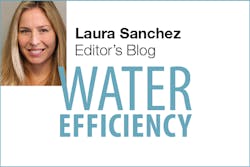As water becomes increasingly precious, the nutrients, metals, and energy contained in wastewater also become more valuable. In fact, many believe that their extraction and commoditization could provide municipalities with an additional revenue stream. Researchers are working to refine resource recovery methods while encouraging utilities to view wastewater as an asset.
In the US, wastewater facilities process approximately 9.5 trillion gallons of wastewater each year according to the EPA. The treatment process alone accounts for about 3% of the nation’s electrical energy load.
Energy from wastewater’s organic and thermal content can be recovered through anaerobic digestion, a process in which microorganisms metabolize organic compounds and release methane-rich biogas or use microalgae that can provide biotreatment while producing potentially valuable biomass. Recent reports indicate that wastewater can contain more than three times the amount of energy needed to treat it.
In a remarkable 2018 study, researchers cultivated algae at a wastewater treatment facility and harvested it for bio-oil, fuel gas, and fertilizer products. Researchers concluded that for every 1,000 kg of dry algal biomass, these products had an estimated total value of $427.
Beyond energy recovery, there are also nutrients and metals in wastewater that should be considered potentially marketable products. As Yalin Lee points out, there are opportunities to capitalize on the presence of nutrients like nitrogen, phosphorus, potassium, and ammonia that can be converted to fertilizer. Furthermore, metals such as gold, silver, platinum, copper, zinc, and other precious and industrial metals could be mined from biosolids.
As funding for wastewater treatment infrastructure in the US becomes increasingly strained, the idea of recovering valuable energy and nutrients is more attractive. What are your thoughts? Could resource recovery provide municipalities with a viable revenue stream?
